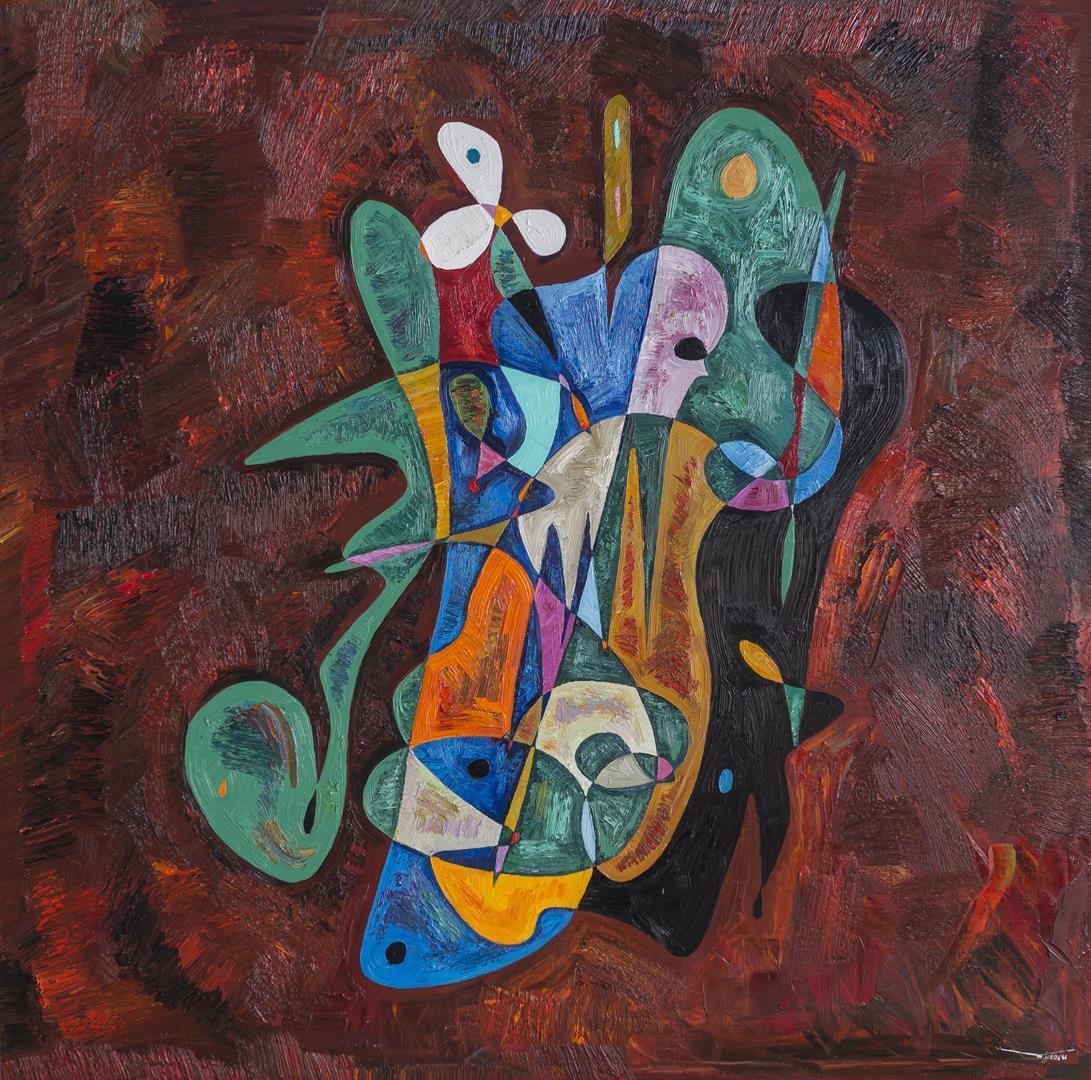

-
Year 2017
-
136x136 Cm / 53x53 In
-
Oil / Acrylic Base / Linen Canvas
-
Original Edition

Baptism of Jesus (2017)
-
Year 2017
-
136x136 Cm / 53x53 In
-
Oil / Acrylic Base / Linen Canvas
-
Original Edition
oil painting Description
Virtosu forged a pioneering and ambitious artistic philosophy in tune with a palpable urge to reinvent, regenerate, and to instigate social evolution and cultural revolution. There is no secure sense of what Virtosu’s works mean. They are deliberate, absolute, and masterful, and entirely ready to one’s natural search for meaning, which they seem to ask for. The Baptism of Jesus by Gheorghe Virtosu with it's meticulous formation and the rich colour of red arouse our curiosity and create a unique viewing sensation that is simultaneously solemn and buoyant, exciting and somber.
Virtosu’s enterprise suggests a celebration of painting, of its ambiguity and its tensions, of how it comes into being and how this process might be communicated to the viewer. Baptism of Jesus has a characteristically rich and complex patterning. There are visual effects having symbolical interpretations. The painting began as an abstract work, but somehow became more, given the reachness the image reveals. Despite Jesus fate, baptism is a happy and holy event.
Upon his baptism in the River Jordan by John the Baptist, an angel descended to Jesus, in the form of a white dove. Should we shift our gaze to the topmost left of the abstract painting, we will see a hand stretched out to a white dove, a white body and two wings. Following that, Jesus heard a voice coming from far above him, telling “You are my son”.
The surfaces of Virtosu’s paintings are like fast-moving rivers; emotional currents swell and surge across the canvas. Thick, brushstrokes build up volume and a sense of structural depth, the paint becomes a physical skin that Virtosu moulds into his subjects.
Is this representative of the blood Jesus shed during the Passion and the Crucifixion?
Should we look carefully at the painting, we will find the purple head like shape, inserted into the green and when freed, assumes a blue color, has a hole in place of his eye. This seems to signify blindness to the truth. Who is blind and who is truthful is open to debate.
Colour is deep and sonorous in Baptism Of Jesus. The red of the background fills in the space; Virtosu dissects the reality frame like a doctor, sharp lines distinguish the figures and streams of blood run down the canvas, reinforcing the fluidity of the brushstrokes. Confident lines define the form, yet the sense of movement in the paint gives a sense of transience, an intimate moment in passing. We may assume the black depicting Judas Iscariot who was a disciple and one of the original Twelve Disciples of Jesus Christ.
For Virtosu, painting is in constant flux. His sculptural works are indents of life and traces of memory, yet he animates the canvas with a sense of movement like no other. The painting represent a sympathetic and elegant contemplation on existentialist themes.
-
Art Advisory Services




read more